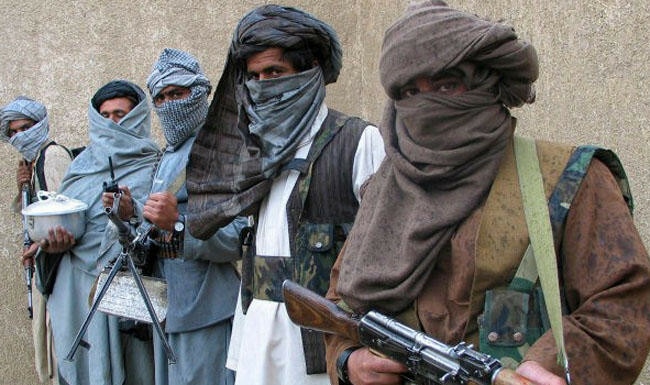
The Pakistani Taliban’s Quest for a Sharia State by Demerging FATA from Khyber Pakhtunkhwa
The Pakistani Taliban’s Quest for a Sharia State by Demerging FATA from Khyber Pakhtunkhwa
The peace talks between Tehreek-e-Taliban Pakistan (TTP) and the Pakistan security establishment are facing an undeclared deadlock since a fruitless tour paid by a top Taliban delegation to Kabul in late July (The Express Tribune, July 27). The Taliban delegation visited under the leadership of Mufti Taqi Usmani, who is considered one of the foremost clerics and tutors not only among the Afghan Taliban but also TTP, and made efforts to convince the TTP leadership to withdraw its primary demand for a demerger of the Federally Administered Tribal Area (FATA) with Khyber Pakhtunkhwa (Dawn, July 31). However, the TTP rejected a compromise on this “FATA demerger” issue (The Express Tribune, July 30). Rather, the TTP handed a two-page charter with demands to the Taliban delegation, which called for the demerger and the Islamization of Pakistan, among other demands, while criticizing the Pakistani military (Twitter/@roohan_ahmed July 26). Unless these demands are met by the Pakistani security establishment, any peace with the TTP may be impossible to achieve.
The TTP’s Fresh Charter of Demands and Increasing Attacks
The two-page TTP charter in Urdu argued that Pakistan was created as the result of a covenant signed by Pashtun tribes under the influence of Islam in the then-newly established country. However, it claimed the Pakistani army and high-profile political families, which are the byproducts of British imperialism, have been the key obstacles preventing the imposition of Sharia. The TTP further acknowledged it did provide shelter and asylum to Afghan Taliban fighters in the former FATA tribal region after 9/11 to oppose the imperialistic U.S-led War on Terror that the Pakistani government had supported (Twitter/@roohan_ahmed, July 26).
Currently, the TTP is reluctant to step back from its position on the FATA demerger while the Pakistani government has also adamantly claimed a demerger would be unconstitutional (The Express Tribune, August 22; Dawn, June 30). The deadlock has invited a fresh wave of insurgency in former FATA districts, particularly across Swat. The TTP, for example, has started attacking security forces and kidnapping soldiers and police (Dawn, June 18). Among other operations, the TTP militants set up a check post in the Swat valley and kidnapped seven police officers, including a Deputy Superintendent of Police (Aaj News, August 9).
Former Senator Farhtullah Babar, a seasoned politician and spokesperson to former president Pakistan Asif Ali Zardari, argues that the TTP are now experiencing a rebirth (Twitter/@farhatullahb, August 7). The militants have been particularly active in Dir and Swat since penetrating Waziristan, despite the Pakistani government’s claims of breaking the backbone of militants. Babar’s claim is evidenced by the 24% increase in TTP terrorism from mid-2021 to mid-2022 (Dawn, May 3). The Pakistani Parliament also acknowledged the resurgence of TTP for the first time since the Taliban’s Kabul takeover of Afghanistan in August 2021 (Gulf News August 11).
Pakistani Demands and Meeting TTP Demands
Pakistan’s security establishment has presented its own demands to the TTP, which includes the TTP’s dissolution or its renunciation of the use of arms and violence so it can become a non-violent political party that respects constitutional norms (Tabadlab, June 14). The Pakistani security establishment has also accepted five TTP demands and only rejected the first and main demand regarding the FATA demerger (Dawn, July 6). The second TTP demand for the withdrawal of the military has been accepted (Aaj News Television, June 2). Now the command of Malakand Division is under the Frontier Corps, and not the military, which occurred during a ceremony in Swat and resulted in the TTP announcing an indefinite ceasefire.
The third demand is related to the enforcement of Sharia in Malakand Division, which has been promulgated since 2009 (Dawn, April 14). This TTP demand, therefore, was already redundant (Dawn April 16). The fourth demand was also accepted, and the security establishment released up to 100 commanders and fighters from prison and offered a presidential pardon for two key TTP commanders, including Muslim Khan and Mehmood Khan (The Express Tribune, December 10). Both the commanders had bounties placed on their heads in 2009 (The Guardian, September 11). Muslim Khan was known as the “butcher of Swat” and a military court in Pakistan had sentenced him to death (BBC, December 29). Mehmood Khan, meanwhile, was also a TTP leader from Swat and was convicted of kidnapping two Chinese engineers for ransom and was sentenced to 20 years in prison (Gandhara May 12).
The fifth TTP demand for complete “freedom” in Malakand division has been met by silence from the government. However, many have observed a considerable increase in the number of TTP militants released from prison belonging to areas across Swat and Malakand Division. As such, it seems the Pakistani government has met this demand, albeit not publicly (Gandhara August 17). The sixth TTP demand for financial compensation to families of militants has also been met with silence. However, there have been past cases when Pakistan financially compensated TTP fighters under the Shakai Peace agreement and paid handsome compensation to militants for casualties in their ranks and collateral damage (Dawn, February 3). The sixth demand, therefore, will seemingly be met by Pakistan.
Conclusion:
The current phase of TTP insurgency and its struggle to demerge FATA with Khyber Pakhtunkhwa is one part of the TTP’s ultimate goal of creating a sovereign territory where they can apply their own ideology and Sharia Law. Pakistan has evidently budged on other demands, but not this one. If it does accede to this and all the other TTP demands, it will further boost TTP morale, while not necessarily guaranteeing a long-term end to the conflict.


